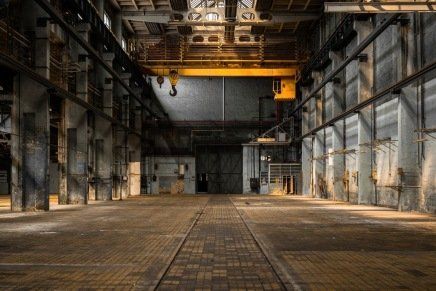Irrigation Inspections to Request Before Buying Warehouse Space
Expanding your warehouse often means considering existing warehouse properties. Your real estate agent may have amazing deals on warehouse properties, but a good price does not mean that the properties are free of issues.
Before you buy a warehouse space for your manufacturing business, there are some irrigation issues you need to check. The following are just a few of the irrigation inspections an irrigation service contractor should perform on an older warehouse space.
CCTV Inspection
The first step that most irrigation service contractors will provide is a CCTV inspection. This inspection deals with all of the plumbing, water bores, drains and septic tanks located in and around the warehouse. There are several benefits to this type of inspection, making it vital to your pre-purchase warehouse inspection.
The leading benefit to a CCTV inspection of the warehouse is the lack of damage CCTV inspections cause. The second benefit is the ability to see any clogs, breakdown of pipes or irrigation path issues before buying. You can use this knowledge to negotiate on the price of the warehouse.
After you make your purchase, you can also hire the contractor who performed your inspection to make repairs.
Flow Checks
Pipe irrigation paths can contribute to several issues with your overall warehouse irrigation flow. The way that pipes have been connected, redirected and capped off can cause the water flow to block off or branch off, causing a heavier flow of water to one area of the irrigation route than another.
For example, the original pipe irrigation path likely worked well when the warehouse was built. Over time, pipes may have been capped off or rerouted. These reroutes caused a new path that may now be an issue.
Your irrigation service contractor will do flow checks. These flow checks will check the PSI of the water flow. The pressure of the water flow will let the contractor know the speed of flow and if any possible issues exist.
If there is a flow issue, the contractor will check individual pipe irrigation paths to locate the problem. After an issue is found, repathing the pipes will be the next step. The repathing of the pipes will increase the water pressure and improve irrigation flow. The contractor will also remove capped-off pipes that are no longer in use to make the system more efficient.
Rainwater Drainage and Erosion Inspection
After your indoor pipes and septic lines are checked, the irrigation service contractor will move outside. The first thing they will check is the rainwater drainage and erosion from that rainwater. If there is heavy erosion on the cement surrounding the warehouse, it could be an indicator that the rainwater flows and drains heavier in that area.
If your contractor sees signs of erosion, standing water or washouts, they will develop a new drainage plan. This drainage plan may require the use of guttering and rainwater collection areas or runoffs that lead directly into municipal drainage systems and grate systems.
Drainage Grate Inspection
When the warehouse was originally built, the contractors likely placed drainage grates near or around the warehouse and warehouse parking. The drainage grates may have been suitable at the time. However, as the area around the warehouse developed, the water flow in the area may have increased, causing the grates to no longer drain the water properly.
Your contractor will inspect the drainage grates and offer trench grate options for longer drainage areas. They may also trenched drainage grates that lead used water to a greywater collection system. Other options may include decorative grates to fit the location of your warehouse if curb appeal is an issue.
If you have narrowed down the warehouse space you want to buy, contact RMC. We can offer an inspection of the warehouse space. We will let you know the issues with the property, how we can help solve the issues and what steps need to be taken. We can also schedule the upgrades or repairs after the property is purchased.

